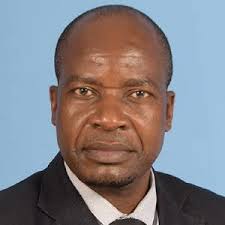Overview

- Act: Kenya National Qualifications Framework (KNQF) Act, 2014
- Formed: 2016
- CEO: Dr. Alice Wairimu Kande
- X (Twitter)
The Kenya National Qualifications Authority (KNQA) was established under the Kenya National Qualifications Framework (KNQF) Act, 2014, and began operations in 2016. KNQA is responsible for coordinating and overseeing the National Qualifications Framework (NQF) in Kenya. It ensures that qualifications in the country meet national and international standards, facilitating recognition of education and training achievements. The authority supports the alignment of various qualifications across sectors, enhancing mobility and access to educational and professional opportunities. KNQA works closely with stakeholders in education, training, and labor to ensure quality assurance and harmonization.
CEO: Dr. Alice Wairimu Kande
Dr. Alice Wairimu Kande is the Director General of the Kenya National Qualifications
Authority (KNQA). She holds a Ph.D. in Business Administration (Strategic Management) from Jomo Kenyatta University of Agriculture and Technology, and a Master’s in Business Administration. Dr. Kande has held senior positions in academia and KNQA.

Management Team

Dr. Alice Wairimu Kande
CEO
CPA Michael Njogu
Internal Auditor

Ivey Koin
Corporate Communications

James Tegeret
Acting Deputy Director, Registration Accreditation and Documentation

Vincent Koech
Deputy Director, Kenya National Learners Record Database (KNLRD) and Head of ICT
Dr. Winnie Bulimo
Deputy Director, Standards Assessment and Quality Assurance (SAQA)

Stanley Maindi
Acting Director, Technical Services
Anne Rita Mwaniki
Human Resource and Administration Manager
Functions
- Developing and Managing the National Qualifications Framework (NQF): KNQA is responsible for developing, implementing, and maintaining the NQF to ensure the standardization of qualifications in Kenya.
- Quality Assurance of Qualifications: Ensures that qualifications awarded by institutions in Kenya meet established standards and are aligned with the NQF.
- Recognition of Qualifications: Facilitates the recognition and validation of qualifications, both within Kenya and internationally, to promote employability and further learning opportunities.
- Coordination of Stakeholders: Collaborates with key stakeholders, including educational institutions, government bodies, and employers, to ensure the relevance and recognition of qualifications.
- Assessment of Qualifications: Evaluates and accredits qualifications and training programs offered by various institutions, ensuring they meet quality standards.
- Facilitate Skills Development: Promotes and supports the development of a skilled workforce in line with the national economic needs and global trends.
- Harmonizing Qualifications: Ensures alignment and comparability of qualifications across different levels of education, sectors, and industries, both within Kenya and internationally.
- Advisory Role: Provides advice to the government on matters relating to qualifications, skills development, and the education system to support economic growth and development.
- Public Awareness and Advocacy: Works to increase public awareness of the National Qualifications Framework and the value of qualifications in the job market and for personal growth.
- Research and Policy Development: Conducts research on emerging trends in education and qualifications to inform policy decisions and improve the overall quality and relevance of qualifications.
Important Links
Address & Contacts
- NACOSTI Building,4th Floor, Off Waiyaki Way, Upper Kabete,
- P.O Box 72635-00200,Nairobi, Kenya
- info@knqa.go.ke
- +254-020-2100272